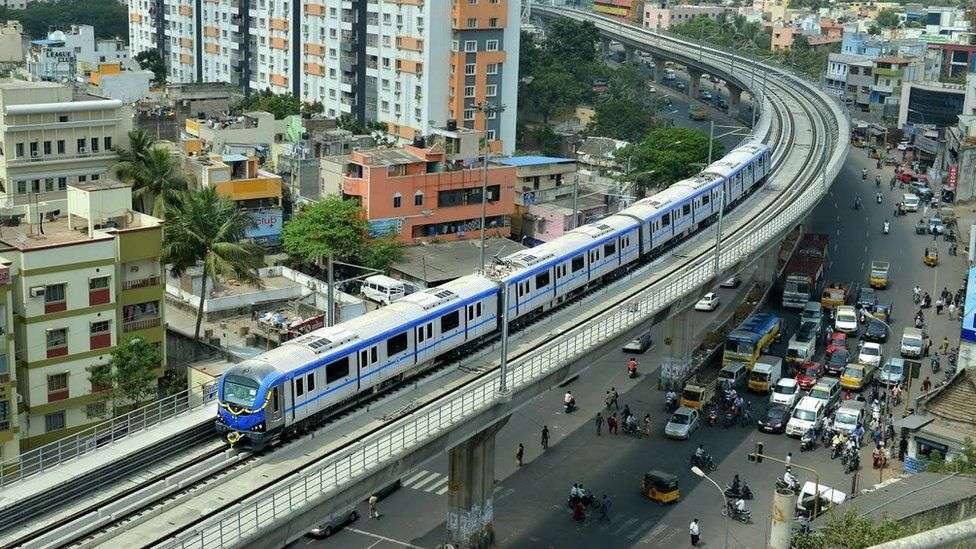India has officially emerged as the world’s third largest metro rail network, marking a significant milestone in its urban transportation development. The country’s rapid expansion of metro services has placed it just behind China’s Guangzhou metro system, with plans underway to surpass it and become the world’s second largest metro network.
As of 2025, India operates over 900 kilometers of metro lines spanning multiple major cities, including Delhi, Mumbai, Bengaluru, Chennai, Hyderabad, and Kolkata. This growth reflects the government’s sustained investment and focus on improving urban mobility, reducing road congestion, and promoting sustainable public transportation.
Delhi Metro, the pioneer and largest metro system in the country, continues to serve millions of commuters daily, providing efficient and affordable transit options. Other cities have accelerated their metro rail projects, contributing to a rapid increase in total network length. Projects currently under construction and in planning are expected to add more than 600 kilometers to India’s metro network over the next few years.
Government officials have indicated that with these ongoing expansions, India will surpass Guangzhou’s metro system, currently the second largest in the world, positioning India as a global leader in urban rail transit. Shanghai retains its position as the world’s largest metro system.
Urban development experts note that the metro network’s expansion aligns with India’s Smart Cities Mission and national goals to reduce vehicular pollution by encouraging mass transit solutions. The metro projects are also credited with generating employment and boosting economic activity in related sectors such as infrastructure and technology.
Despite challenges such as land acquisition, funding, and integrating last-mile connectivity, authorities remain optimistic that policy reforms and increased public-private partnerships will ensure timely completion of metro projects.
The Indian Ministry of Urban Development has stated, “The rapid growth of metro rail networks across Indian cities highlights our commitment to transforming urban transportation and improving quality of life for citizens.”
With metro rail services increasingly becoming the backbone of urban transit in India, the country’s position as the world’s second largest metro network is expected to be realized within the next few years, marking a major achievement in public transportation and sustainable urban planning.



